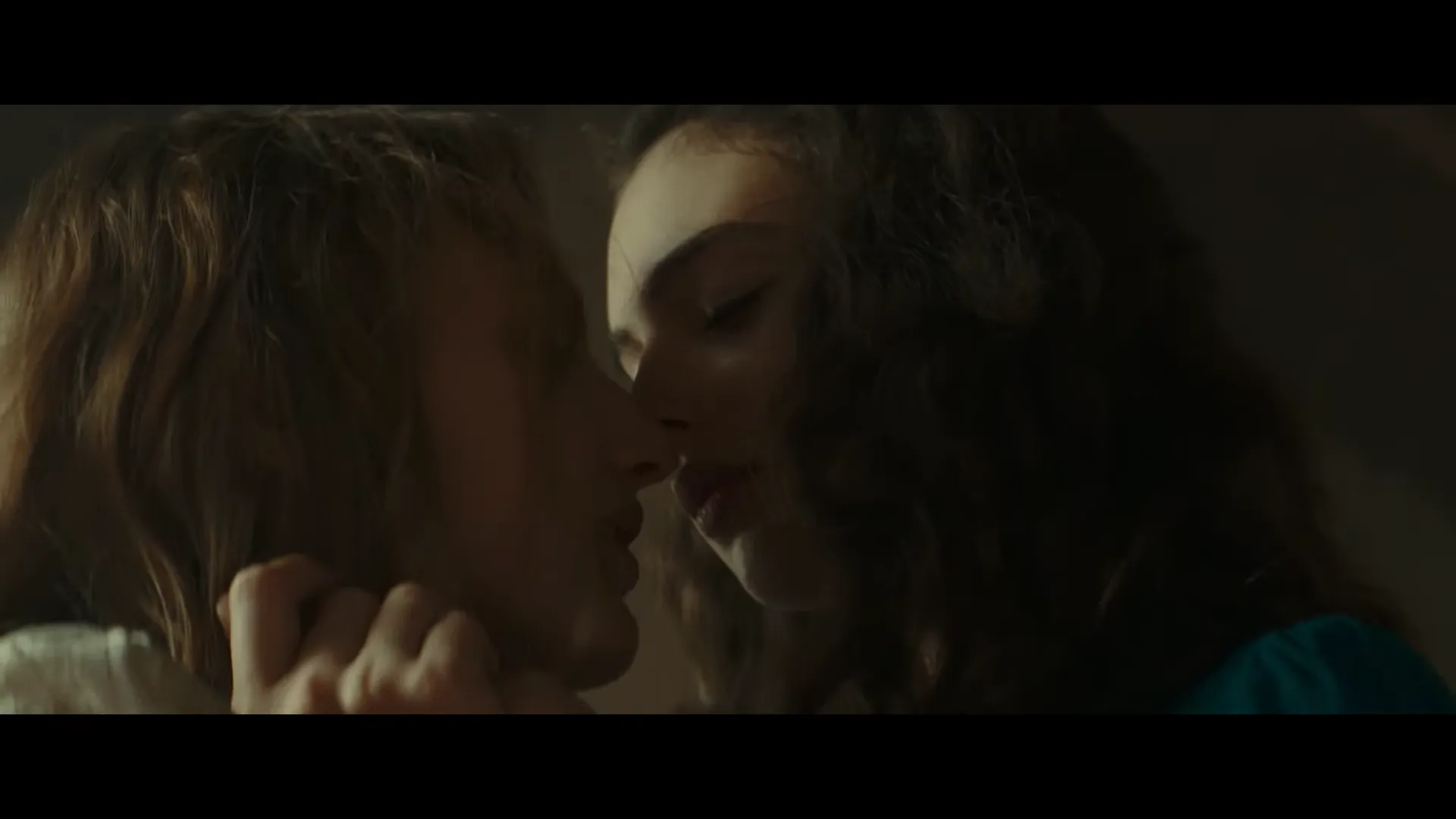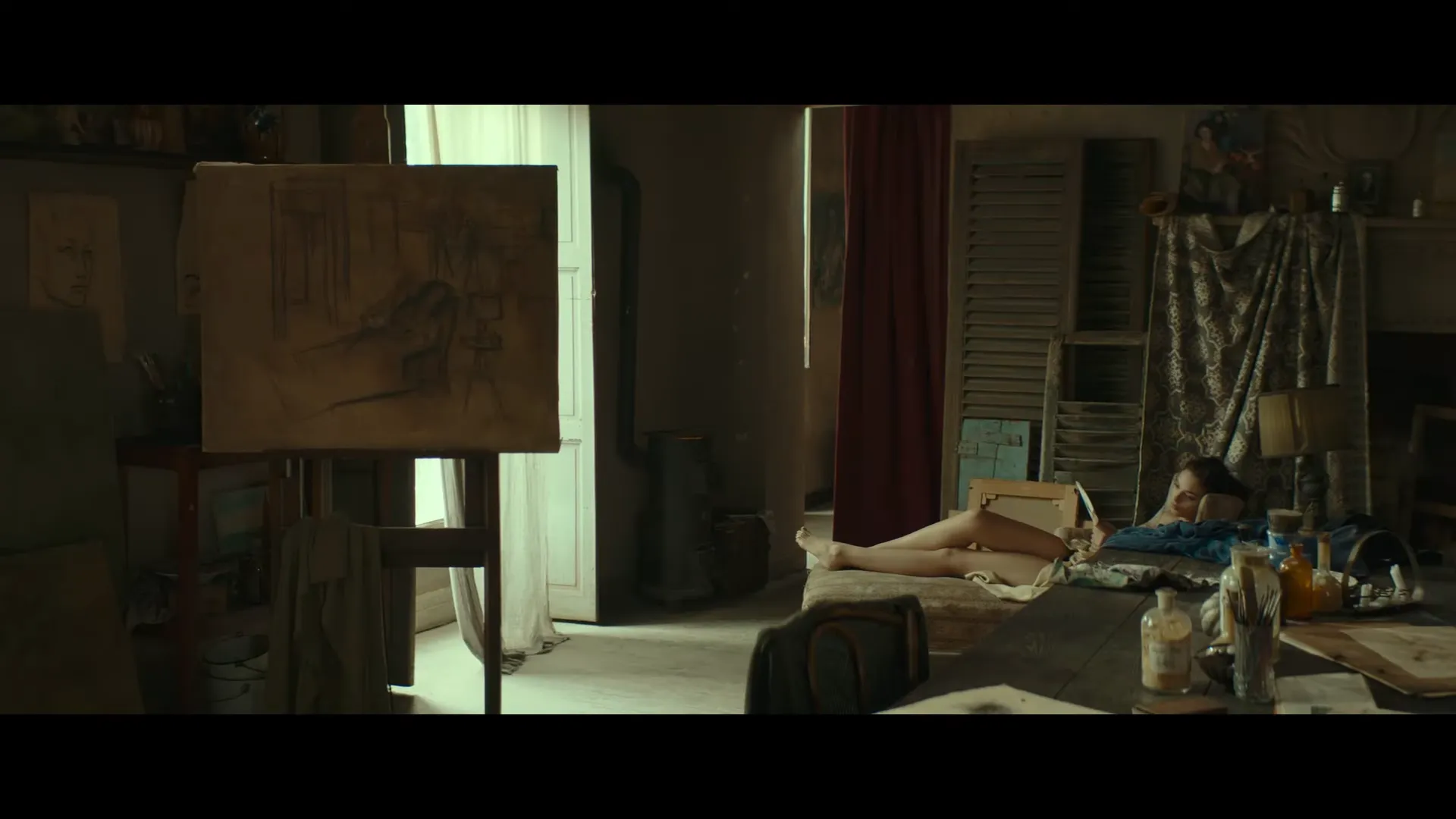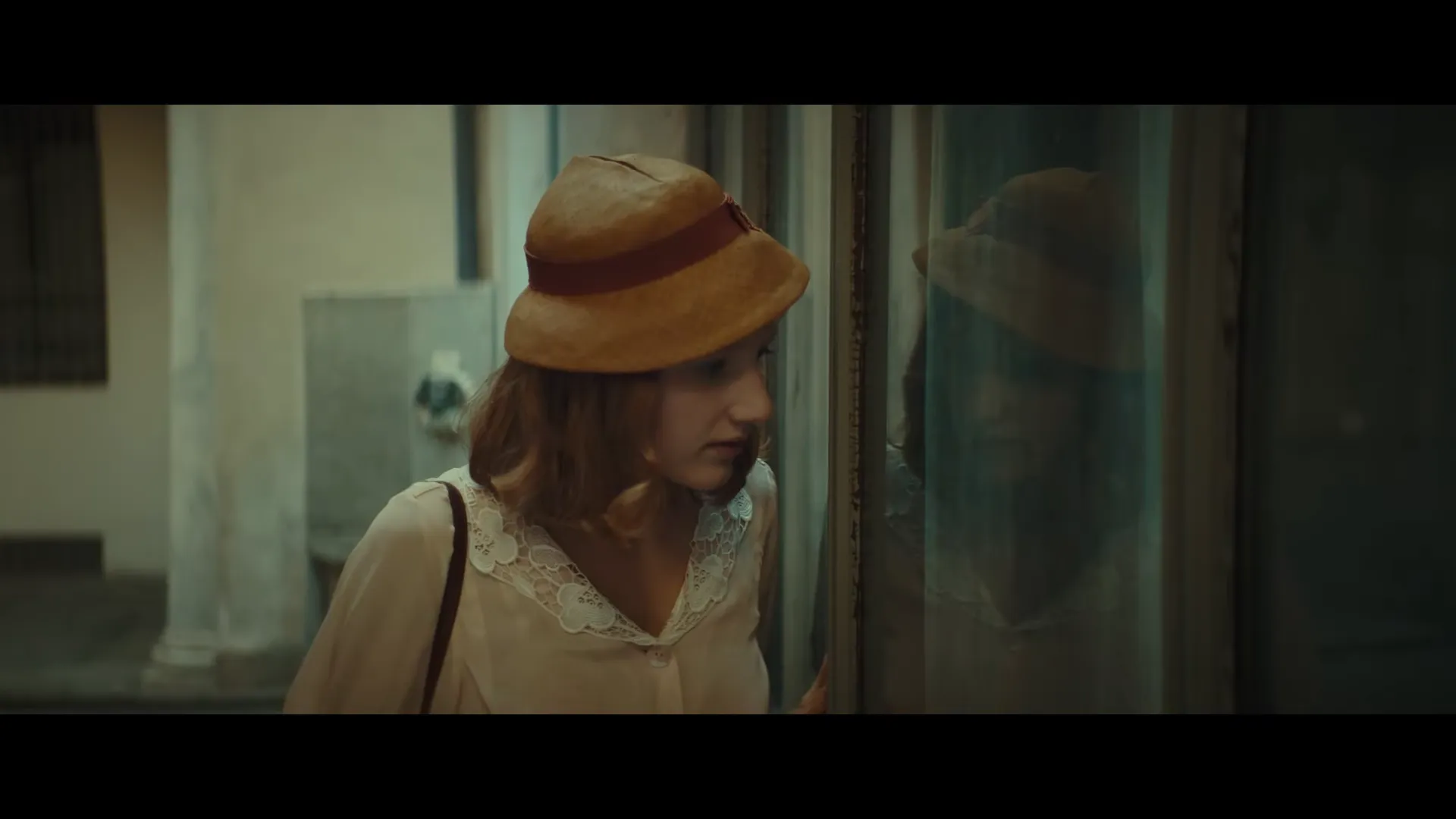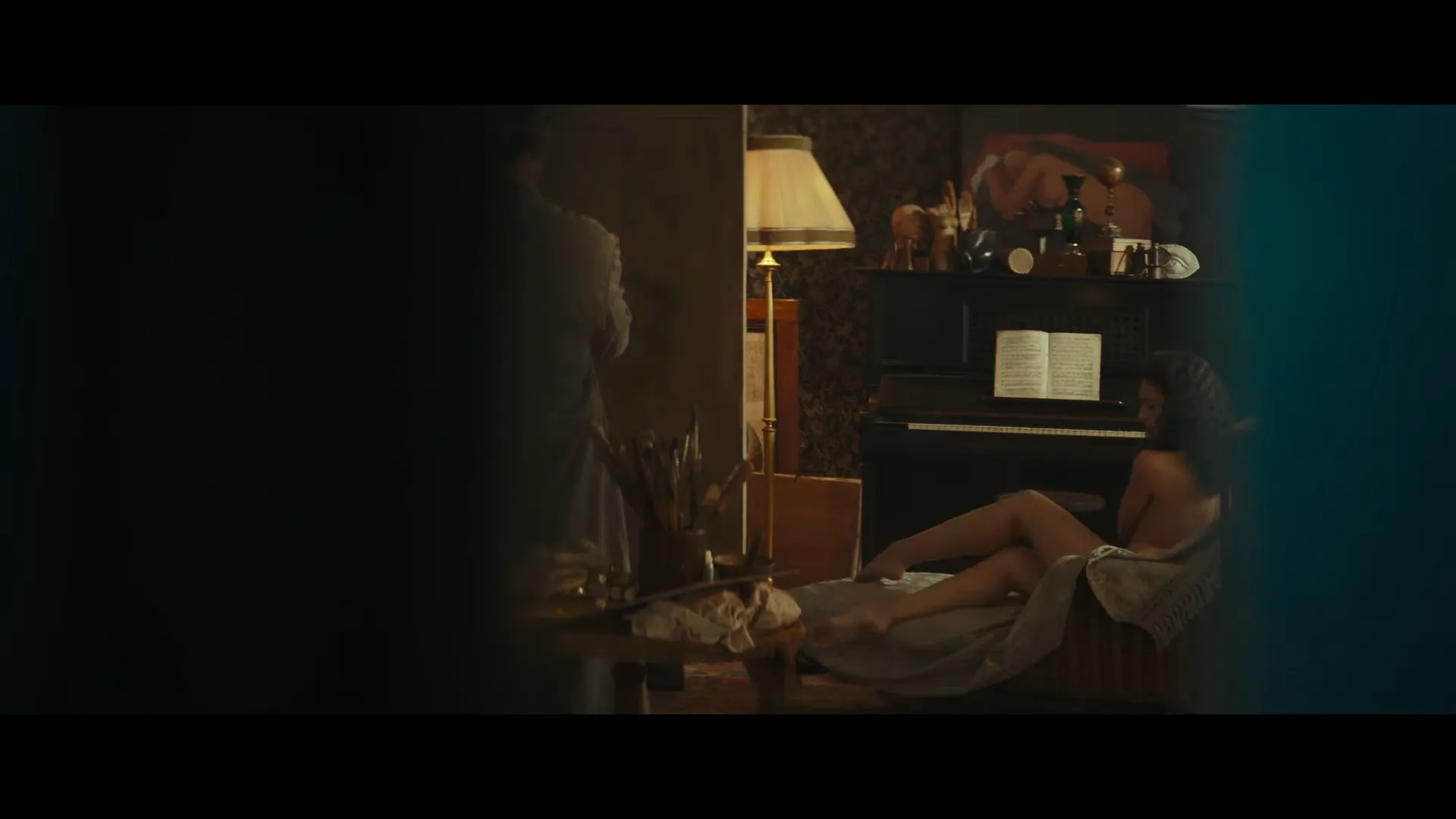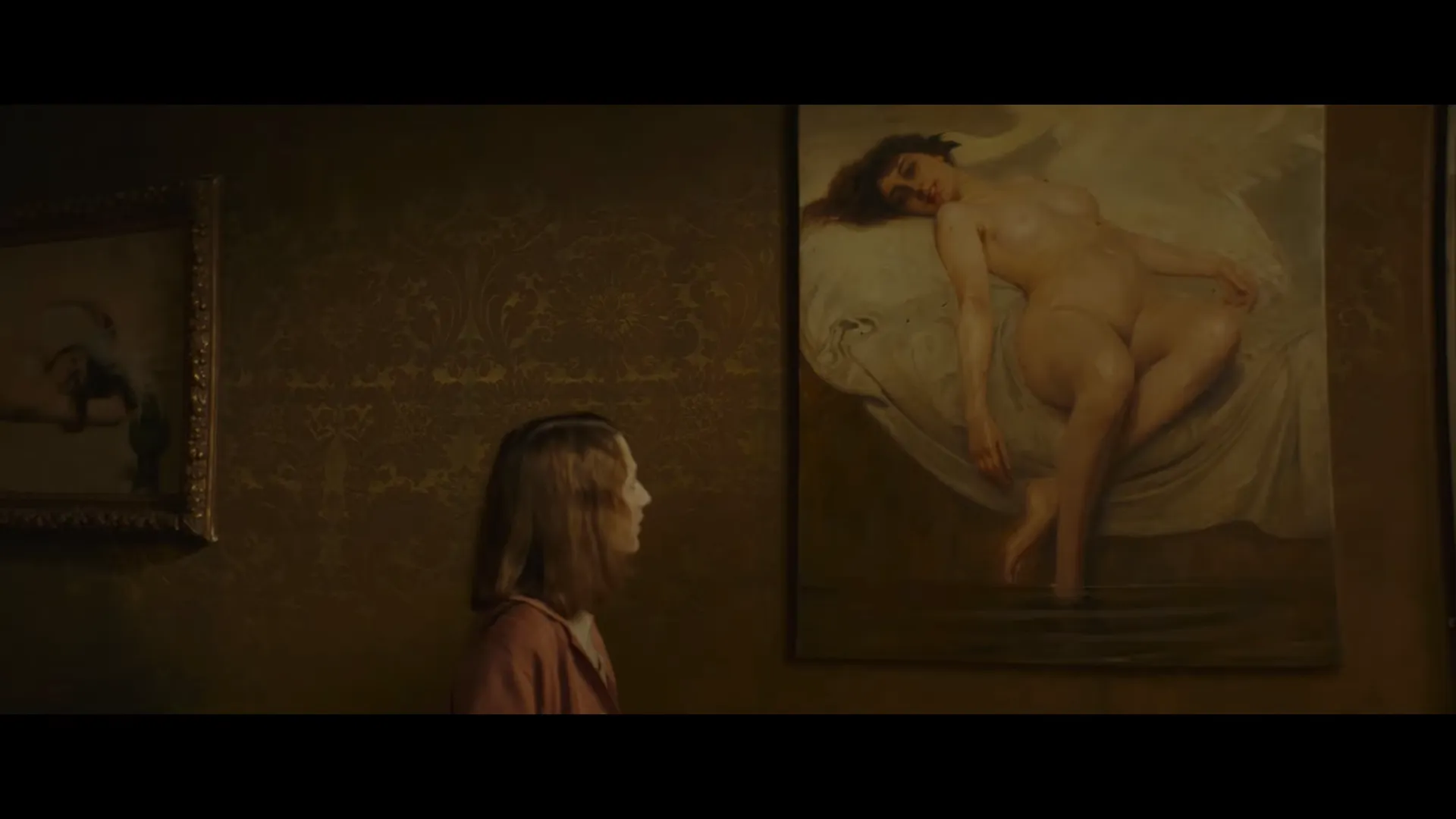Laura Luchetti’s The Beautiful Summer transports viewers to 1930s Turin, a backdrop alive with the promise and perils of a fateful season. We meet two young women on the cusp of change: Ginia, a gifted seamstress yearning to stretch her wings, and Amelia, a carefree artist’s model whose allure both entices and unsettles.
As Ginia falls under Amelia’s spell and is swept up in bohemian circles far from her stable family life, she begins a journey of self-exploration that brings new feelings and freedoms but also tensions with the world she came from.
Meanwhile, fascist ideals tighten their grip on Italy, casting shadows over private moments of passion and progress. Through vivid imagery and magnetic performances, Luchetti’s 2023 drama breathes life into a timeless coming-of-age narrative and examination of individual hearts navigating society’s constraints.
A Summer Awakening
The film introduces us to Ginia, a young seamstress setting out to make her way in the bustling city of Turin. Though gifted with a talented hand for design, Ginia finds herself falling into a routine at her workplace that fails to ignite her passion. After hours, she enjoys simpler pleasures—until the spark of change arrives in unexpected form.
One summer’s day, Ginia joins friends by the river for leisurely pastime. There, a captivating presence emerges from the water—Amelia, a free-spirited beauty who effortlessly draws all eyes. Amelia shares Ginia’s interest, keenly sensing an intriguing air about the shy blonde. From this chance meeting, a bond begins to blossom between the two women, so obviously different yet sharing a yearning for discovery.
Where Ginia appears content to tread well-worn paths, Amelia embraces life with revelry and risk. Through Amelia’s circle of bohemian artists, Ginia experiences intoxicating new perspectives that widen her world. But Amelia’s seductions worry Ginia’s protective brother Severino, who warns against this “unnatural” influence.
Caught between conflicting desires, Ginia finds herself drawn deeper into Amelia’s tantalizing realm. Hoping to truly know herself through Amelia’s eyes, Ginia takes tentative steps that will either liberate repressed passions or shatter the life she’s always known.
Yara Vianello brings vulnerability and complexity to Ginia, portraying an innocent awakening to desires both exciting and disorienting. Deva Cassel, in her debut, imbues Amelia with a mesmerizing blend of allure and melancholy that leaves an indelible mark. Their intense chemistry, while stirring raw emotion, also touches on thorny themes that remain prescient.
Reflections of a Bygone Era
Director Luchetti transports viewers straight into 1930s Turin through exquisite production work. Designer Muselli recreates the city in all its splendor, from fashionable downtown shops and charming piazzas to more intimate spaces like Ginia’s flat and Gemma’s atelier. Costumer La Parola outfits the cast splendidly in period attire, costume Ginia for her roles as seamstress and socialite.
Cinematographer Suarez Llanos’ camera soaks in the ambiance, using natural lighting to emphasize the languid pace of life. Wide establishing shots present bustling cityscapes, then close in delicately on expressive faces. During Ginia and Amelia’s first dance, the lens draws so near that you feel part of their intimate moment.
Composer Cerasi’s score paints each scene, enhancing bittersweet emotions. His tender accompaniment to the dance breathes magic into a charged affair. Elsewhere, his music retreats respectfully to spotlight delicate performances.
Through these artistic works, Luchetti immerses viewers completely while respecting the humanity of her themes. Her sophisticated visual language brings an unfussy sincerity, as if inviting us directly into these people’s company. Technical mastery serves intimate character moments that linger with us.
We appreciate glimpses of everyday reality through authentic production values. When Ginia admires her reflection, the camera catches her naturalism and sweet curiosity. These grounded touches enhance our understanding of her journey from within. Luchetti’s astute direction reflectively casts light on the personal within the political, the timeless amid the timely.
Awakening to Desire
Ginia’s coming-of-age unfolds against a backdrop of limitations as she navigates burgeoning feelings in a society not yet ready to accept them. Though gifted in her work, passion remains untapped—until she encounters the fiery Amelia.
Their magnetism unleashes confused longing in Ginia. Seeking to know herself through Amelia’s eyes, she embraces bohemian circles, exposing new perspectives. But disapproval from Severino and traditions giving women few choices heighten the appeal of Amelia’s fearlessness.
When curiosity and innocently copied behavior lead Ginia toward exploitation, Luchetti treats difficult themes with care. One scene portrays a woman’s common rite of passage—first intimacy—as underwhelming, even hurtful. Yet overall, visceral realities are balanced with sensitivity for personalities developing.
Ginia’s bond with Amelia awakens joy and confusion, safety yet danger, as she navigates conforming pressures and illicit passions in a restricted era. Her journey honors fluid aspects of desire, defying restrictive labels.
At its heart, this tender tale resonates beyond its time, as individuals will always confront societal resistance asserting their full, complicated selves. With empathy and ambiguity, Luchetti sparks thought on
how external controls imposed on intimacy between any people deny life’s complexity and diversity of human experience.
Bloom in Adversity
The film gently unfolds against a society gripped by stifling norms. Ginia comes of age in pre-war Turin, an Italy under the repressive rise of Mussolini. His stern speeches creep into scenes, a reminder of oppressive politics pushing many lives underground.
Women find few opportunities beyond family roles or jobs like Ginia’s. Her attraction to Amelia defies expectations. While their bond brings joy, it risks censorship in this conservative milieu. For Luchetti, personal stories touch on the political wounds of an era, showing humanity across divisions.
Ginia passes streets where blackshirts harass, yet remains focused on passions illuminating her heart above all else. Though fascism and an upcoming war loom over the nation, she and Amelia seize intimacy where they find it. Their bond hints that even under darkness, love can discover sunlight.
Luchetti honors the realities of this period while keeping her lens trained on those defying stasis with quiet courage. Against a backdrop of shrinking freedoms, the film celebrates stubborn spirits like Amelia and Ginia who refuse to forfeit their evolving, elastic selves even under scrutiny. Perhaps theirs is a warning from history: that wherever fear or prejudice constrict society, life finds ways to blossom in adversity.
Nuanced Brilliance on Screen
In their captivating on-screen debuts, Yara Vianello and Deva Cassel bring Ginia and Amelia’s story to rich, layered life. Vianello understands intrinsically Ginia’s swirl of emotions—curiosity mixed with fear, passion colliding with obligation. We see each flicker of insight and wounding doubt play out on her expressive face.
Cassel, known for her parents’ acclaimed genes, proves equally a talent to watch. Imbuing Amelia with a spellbinding mix of joy, sorrow, and smoldering sensuality, she makes her equally multidimensional. Their magnetism together draws us deeply inside Ginia’s journey of self-realization.
In Nicolas Maupas’ subtle, thoughtful work as Severino lies a performance worthy of praise. Beyond potential traps of one-note brotherly disapproval, he finds poignant humanity in a man unsure how to accept life diverging from the familiar. The compassion he and Vianello stir in Severino and Ginia’s bond is touchingly real.
Admirably, director Luchetti lets authentic, bittersweet moments between these finely honed characters breathe, avoiding overly dramatic flourishes. When melodrama does seep in marginally, it doesn’t overcome nuanced artistry establishing The Beautiful Summer’s soulful core.
Through underplayed yet powerfully intelligent performances, Vianello, Cassel, and Maupas transport us inside these individuals, grant us insights beyond superficial labels, and remind us how representing interior complexities needs no sensationalism but delicate brilliance.
A Tender Tale to Recall
The Beautiful Summer proves a poignant work exploring the challenges of self-realization against a restrictive social canvas. With empathy and visual flair, Luchetti illuminates Ginia’s journey, embracing repressed desires, as she opens her heart amid fascism’s darkening of pre-war Italy.
Vianello and Cassel imbue their characters with authenticity that lingers long after the end credits. Their sensitive work, guiding us inside the hope, vulnerability, and passion of these pioneering souls, comprises the film’s triumph.
As a romance crossed with intimate character study, Luchetti’s piece succeeds beautifully. Her period setting rings vivid, costumes dazzle, and score sweeps us straight to 1938 Turin. While not flawless dramatically, the compassion conveying human truths at its core resonates.
This memorable tale touching on universal stories of burgeoning sexuality and conformity versus expression proves well worth the experience. Luchetti proves a director who understands emotionally complicated subjects requires heart over theatrics. Hers is a tender memory one may find returning to, even years later, for its staying observational power.
Overall, The Beautiful Summer stands as an accomplished drama, leaving impressions of lives unwilling to be confined and grateful to be experienced through Luchetti’s discerning, soulful lens. Hers is an evocative story to linger with.
The Review
The Beautiful Summer
The Beautiful Summer offers a heartfelt glimpse into the profound yet everyday struggles of self-discovery against a backdrop of societal resistance. Director Luchetti handles intricate themes with empathy and artistic grace through stellar performances that linger in memory long after viewing. While not without room for dramatic improvement, its authentic reflections on the human spirit rising above outside pressures resonate powerfully.
PROS
- Evocative period setting and production design
- Masterful lead performances that feel authentic
- Elegantly captures internal journeys of coming-of-age and sexuality
- Touching portrayal of family dynamics
- Subtly addresses social restrictions and oppressive politics of the era.
CONS
- Narrative pacing feels languid at times.
- Romantic storyline not fully compelling
- Doesn't delve deeply into fascist context
- Potential for more nuanced character development









































